“In one drop of water are found all the secrets of all the oceans;
in one aspect of You are found all the aspects of existence.”
? Kahlil Gibran
Passover, Earth Day, the full moon, meteor showers, so many prompts to reflect. I sit gazing across one of the many lakes of Patagonia. Light, shadows, and wind play across her surface. The waters down here are cold, always. If you have the chutzpah to take a dip, it is literally breathtaking. 
The composite of our individual relationships to water, is societal. How do we relate to it. How do you perceive water? What role does it play in your life? (Please leave thoughts in the comments).
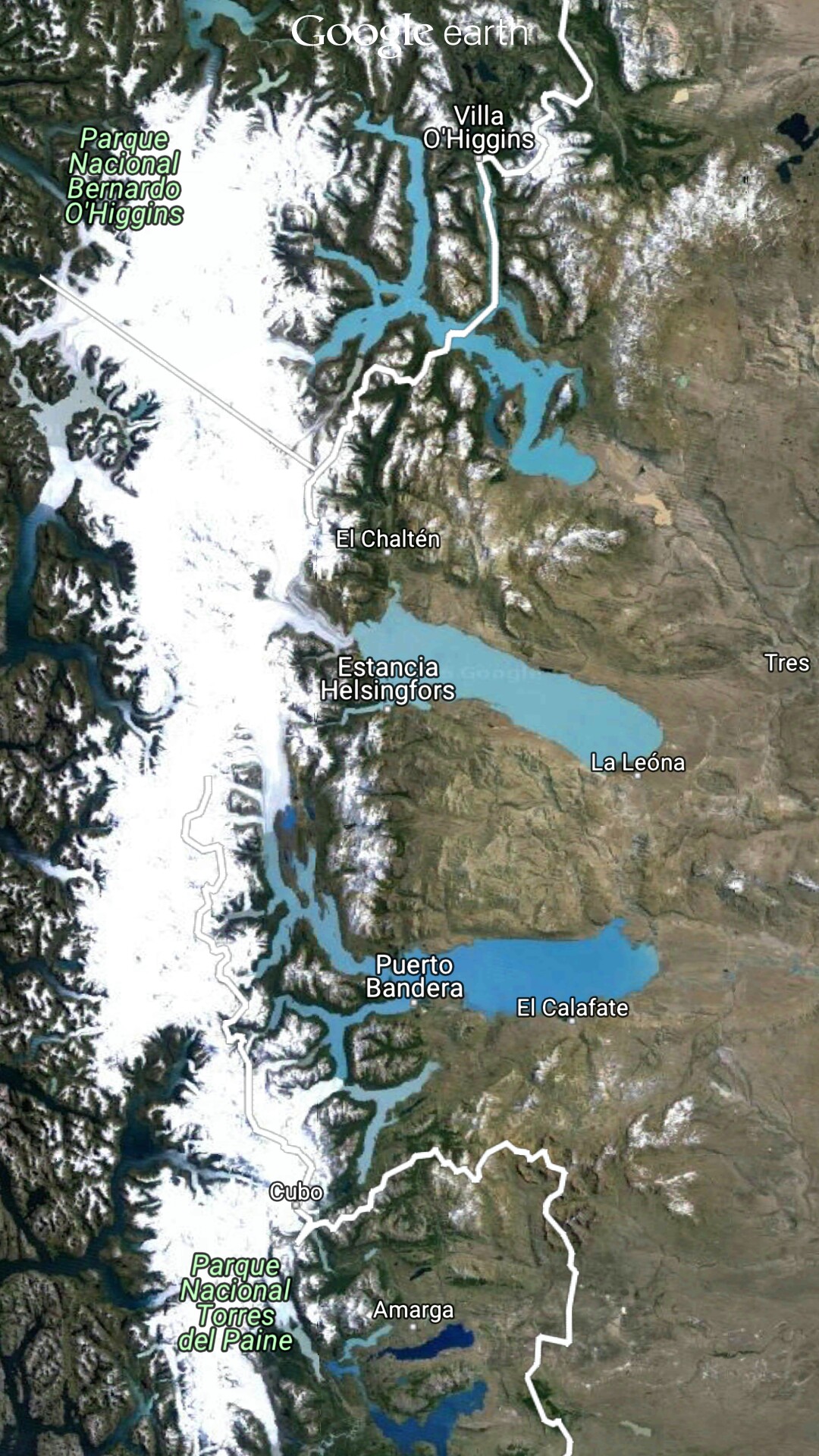
Then there are national policies and borders. Just look at a map of southern Patagonia, at one point the border jumps dramatically west, to split the watershed from the southern Patagonia icefield between the two countries. Both sides have made the area National Parks.
Moving between Chile and Argentina has provided a bilateral perspective of the effect of policy regarding watershed. Despite their fundamentally different policies, both countries face serious questions regarding long term sustainability.
In Chile, under Pinochet, the Chicago Boys, a group of South Americans educated in the US in the 60s and 70s created a system of deregulation and privatization. Mind you, this was during a time when the US was happily overallocating water rights.
In Argentina water is nationally regulated. According to a 2000 World Bank release, water issues are ¨made worse by one of the highest levels of per capita usage in the world at around 500 L/day.¨
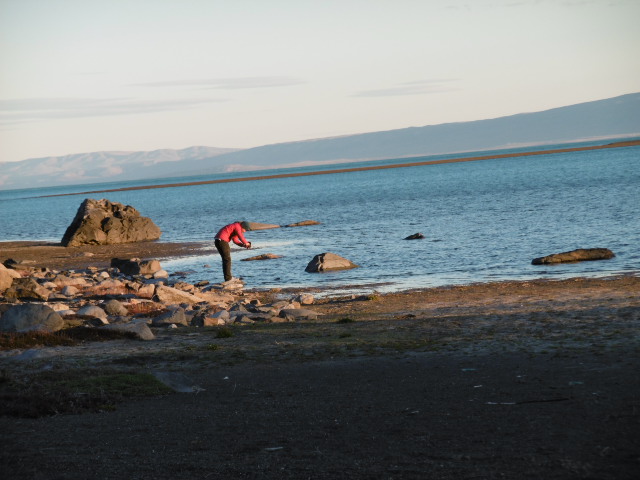
I see and learn more about the heart of the issue for the locals as we walk through the campo, and staying in the home of farmers and ranchers. Water flows from hoses rigged in to streams and springs. The hoses feed into a bucket and when we and the animals were not using it for bathing, washing, and drinking, it overflowed into the yard and down the hill.
To have been raised seeing this, water flowing freely, it is easier to understand why one would not think about it when doing the same at home. This then becomes a matter of awareness. To realize the water we leave running in our homes does not return untarnished to the earth. To recognize, the waters are receeding.
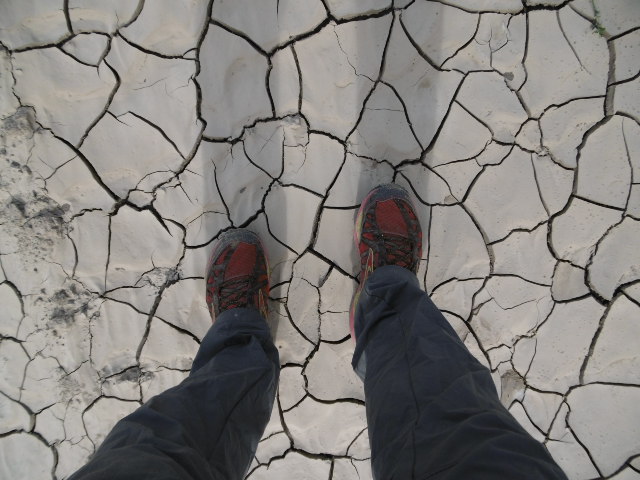
Combine a cutural history of seeing water running plentiful, move those people to quickly developed cities with inefficient systems, compound all of that with 13 years of on and off drought and climatologists’ models of drier years to come and the only way I see forward is education and direct involvment.
One of my earliest teachers in this realm was my friend Andy. A decade ago, both working at Philmont, of his own volition, he wrote a report for the camp officials, suggesting ways in which they might be more eco-conscious. One of the simplest and most impelling points I remember him making was to water the lawns during the evening, rather than at high noon, in the desert sun. So simple.
I asked if he thought the higher ups would listen or care. He explained what they chose to do with the information was theirs to decide. He had done this work, made the effort, for himself. It was a revolutionary way of thinking with which I still grapple.
We may each only be a droplet but together, we are the tide and I believe we can turn it.
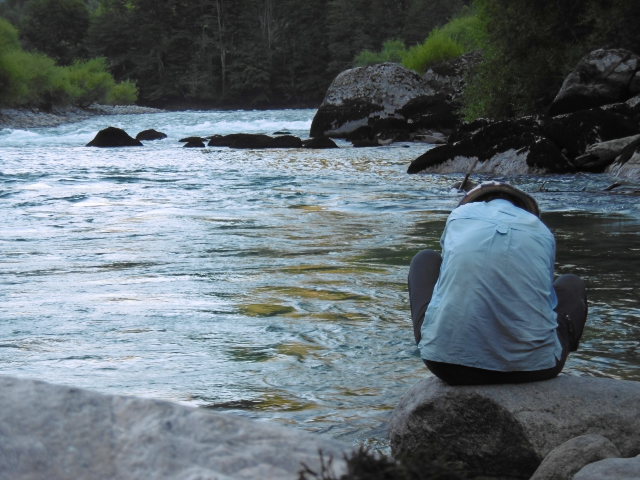
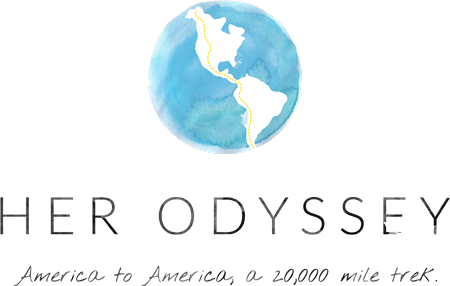

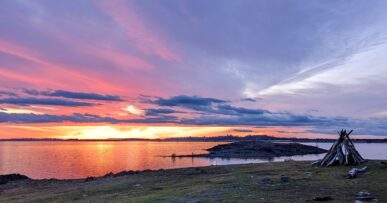
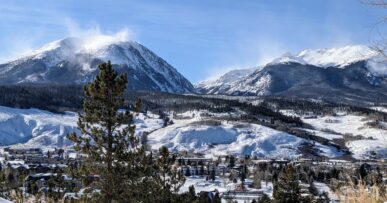


Comments (1)
As a young woman I work for NH Water Pollution Commission in Lake and Pond restoration. It was a wonderful job. We checked water quality, identified plants and algae. One of my favorite thing was speaking with lake association trying to get them to help themselves understand the beauty they hand right at their doorstep. I tried to get them to understand that having green perfect lawns right to the water was harmful. That the fertilizers they spread in abundance not fertilized the lawns but feed the algae. It was always sad when we would be back years later to try and help them with their every growing algae bloom problems. If only they would hear us. I see the before and after photos of California and it is truly shocking. Water will soon be the oil of our future. Countries will go to war over it.